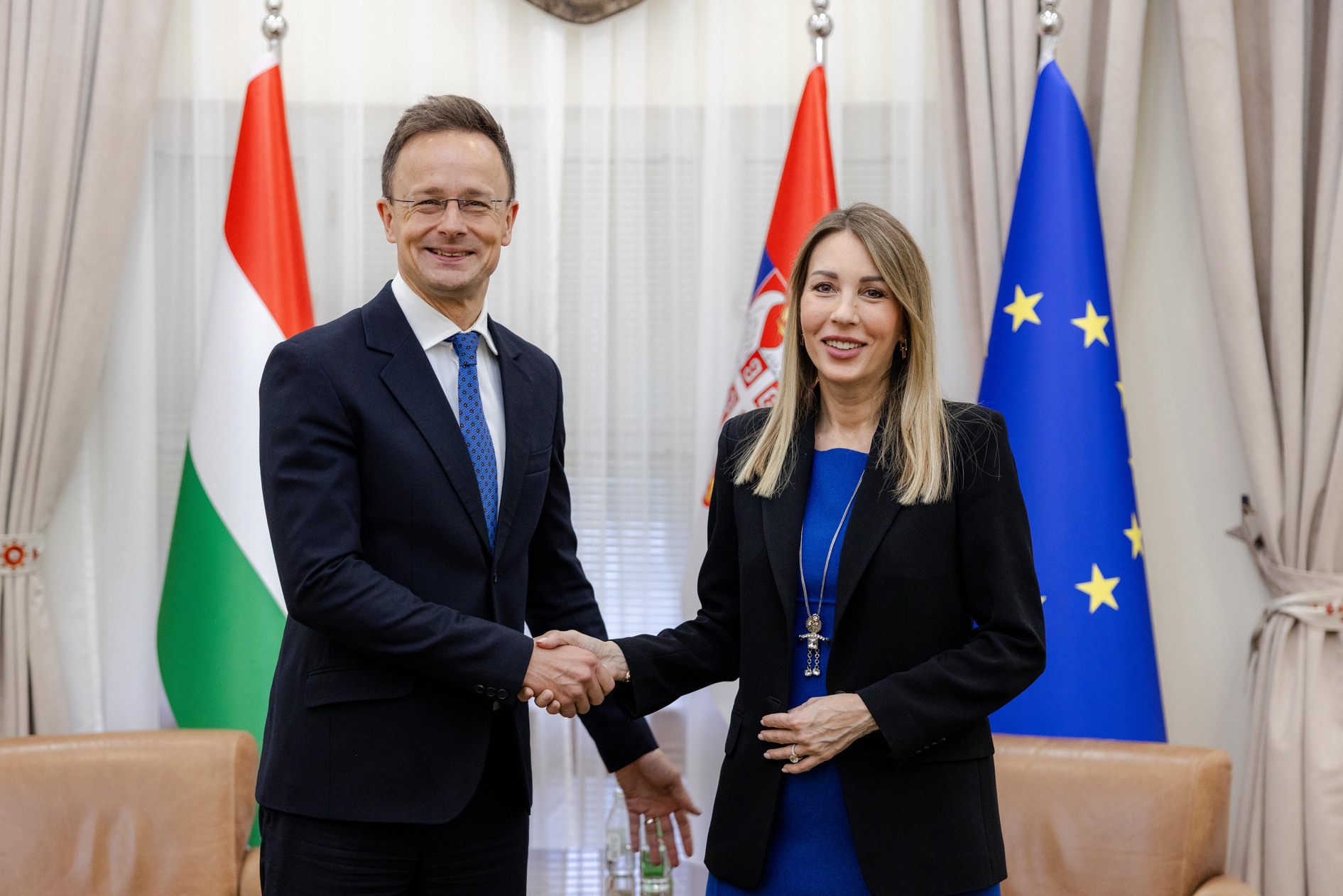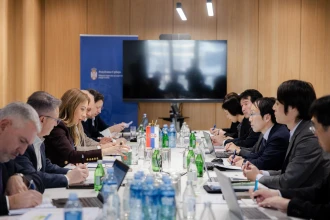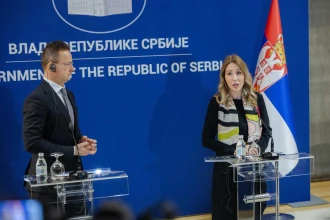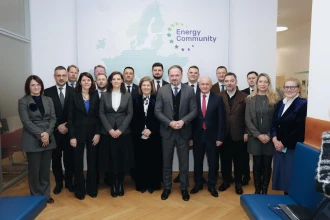Minister of Mining and Energy, Dubravka Djedović Handanović, met today with the Hungarian Minister of Foreign Affairs and Trade, Péter Szijjártó, to discuss strengthening cooperation between the two countries in the energy sector, the construction of the Serbia-Hungary oil pipeline, and collaboration in the supply of natural gas.
Djedović Handanović and Szijjártó: Strengthening Serbia-Hungary Cooperation in the Energy Sector
"True friends are recognized in difficult times, and we are grateful to Hungary for its continued support in a situation where we are facing potential sanctions against the NIS. I am especially grateful to Minister Szijjártó for raising the issue during his talks Washington and Moscow about the position of our countries, that we have done nothing to warrant the imposition of sanctions, and that such measures would only result in regional instability and price volatility", said Djedović Handanović.
Part of that cooperation, she noted, is the commitment of both countries to connect through the construction of a new Serbia-Hungary oil pipeline.
"Just as we now see that the decision to build the Balkan Stream gas pipeline, which ensured secure gas supply for Serbia, Hungary, and several other countries, was the right one, I am confident that the same will be true of our joint decision to build a new oil pipeline and to increasingly rely on partners with whom we have established friendly relations,” stated Djedović Handanović.
She stated that the the Serbian section of the oil pipeline will be 113 kilometers long, for which a spatial plan has been adopted, and project documentation is currently being developed, along with the alignment of technical parameters, a task being carried out by Transnafta and Hungarian company MOL. "The next step is the issuance of location requirements, with the goal of starting construction by the end of the year, at least on one section. The completion of the Serbian section of the oil pipeline is planned for 2027, and for the Hungarian section in 2028, although we will do our best to shorten those timelines. This project will provide us with an alternative, additional route for crude oil supply, which is vital in these uncertain times," said the Minister.
She highlighted that gas volumes delivered via the TurkStream pipeline have increased year over year, from 5.5 billion cubic meters in 2023, to 7.5 billion in 2024, with projections of 8 to 8.5 billion cubic meters for this year. She also noted that Serbia has used most of its gas stocks stored in Hungary, with only 2.7 million cubic meters currently remaining.
“We will continue discussions with the Hungarian side regarding gas storage, and we also have plans to expand the storage capacity in Banatski Dvor, an investment estimated at around 140 million euros, which we plan to complete by 2027. Negotiations are also underway for a new long-term gas supply agreement with the Russian Federation," the Minister stated.
At today’s meeting, both sides reaffirmed their commitment to the construction of the Pannonian Corridor for electricity transmission, which Serbia plans to complete by 2028.
"Once this project is implemented, Serbia will double its cross-border transmission capacity with Hungary, which is important for enhancing supply security. We also plan to integrate with Hungary’s electricity market in 2026, an effort that is recognized as part of our reform agenda and to which we are fully committed. Serbia is the only country in the region that has aligned its regulatory framework in this area, and the amendments to the Energy Law adopted last year will enable integration with Hungary’s market and, eventually, with the entire EU market," Djedović Handanović added.
Hungarian Minister of Foreign Affairs and Trade, Péter Szijjártó, pointed out that without comprehensive energy cooperation, the two countries would not be able to ensure energy security.
"The war in Ukraine has presented all of us in Europe with serious challenges in terms of energy supply. Serbia and Hungary have shown that they can rely on each other by depending on their own strengths. A few years ago, we made a sovereign and courageous decision to build the Balkan Stream pipeline, despite widespread skepticism. Without that gas pipeline, we would not be able to meet our gas needs today," he said.
Szijjártó noted that Hungary and Serbia have now made a new sovereign decision to construct an oil pipeline.
"The oil pipeline will be constructed in the opposite direction of the gas supply route. This new oil pipeline will strengthen the energy security of both our countries, which is important because it has become clear that not every transit country is willing to show solidarity during hard times. In Hungary, we have already completed the feasibility study, and in recent weeks we have made significant progress," the Minister stated.
He emphasized that Hungary can cover its total annual gas needs through Serbia, and likewise, after the construction of the new oil pipeline, Serbia will be able to meet its annual crude oil needs. "This gives us a strategic position that will ensure greater energy security for both countries. In recent years, we have faced serious difficulties with transit countries, and we have passed that test with the best possible results," Szijjártó concluded.




.webp)







